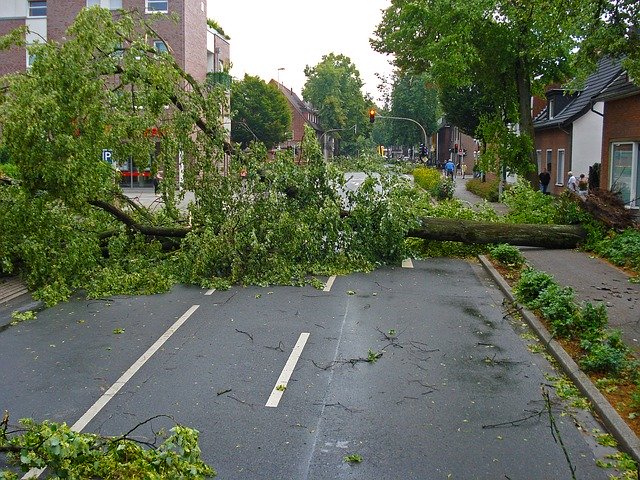- By CycreekPestAdmin
- In General
- Tags General
Hurricane season brings with it a plethora of issues for those who live in the eastern and southern parts of the United States. Bringing with them dangerous winds, rain, and flooding, hurricanes can arrive without much warning and leave significant amounts of damage in their wake. Not only that, but hurricanes can leave your property exposed to secondary damage related to Houston pest control problems.
Attractive Conditions for Pests after Hurricanes
Once a storm has passed, much work needs to be done. Assessing which damage should be fixed immediately and which can wait should include issues related to safety as well as to pest control. Here are some situations pests may find appealing following a hurricane:
Standing Water and Moisture
One of the most attractive environments for many pests is the presence of standing water and high humidity. Mosquitoes, centipedes, slugs, snails, and other critters absolutely thrive on the weather just after it has rained. Flooding related to hurricanes can often relocate certain pests, such as rodents or ants, right into the area of your home or office building—even if you’ve never had a problem with them before.
Structural Damage
Strong winds can fling debris about, creating damage to structures. Holes in doors and windows, roof damage, gaps in siding, and water-logged structures act as beacons attracting critters. Following a severe storm such as a hurricane, pests will be searching for a warm, dry place to nest, and even holes as small as ¼” can allow rodents and other annoying creatures to sneak into your home.
Debris
Trash and rubbish, wet from the rain, may be thrown about during a hurricane. Although it may not seem like it should be at the top your priority list, cleaning up random debris on your property is critical to keeping critters from seeking a safe harbor near your home.
Food Sources
Hurricanes can reveal food sources that pests might find attractive, including food that has been left uncovered or inadvertently allowed to spoil. Evacuations and long power outages can leave food to spoil, drawing the attention of critters such as disease-ridden flies, maggots, and cockroaches.
Which Pests are Common After a Hurricane?
Understanding which pests thrive after a hurricane will help you to be on the lookout for them. Here are some of the most common pests found following a storm:
- Mice and rats have excellent swimming skills, allowing them to easily relocate during a storm that produces flooding.
- Fire ants can form a living “raft” that keeps them afloat during wet weather. They can float for up to two weeks until land appears again, when they’ll look for a new home in yards and buildings.
- Mosquitoes are always searching for standing water, which is often in ample supply after a huge storm. Since females can lay up to 100 eggs at a time and they grow into adults within about two weeks, their populations continue to grow after a storm.
- Cockroaches love wet, dark conditions, breed very quickly, and will eat almost anything. The chaos following a storm acts as a perfect environment for roaches.
Pest Control After a Hurricane
Following a hurricane or storm, use these steps to prevent infestation of insects:
- Remove Debris. As soon as it is safe to do so, begin the process of collecting rubbish and debris that has landed on your property. This will make it less likely for pests to take up residence.
- Seal It Up. Fill in any gaps or holes in entry ways, reattach loose siding and shingles, and block other cracks that may have been created by strong winds.
- Eliminate Standing Water. A perfect environment for disease-carrying mosquitoes, standing water should be removed as soon as possible. Check your property for old buckets, gardening containers, children’s toys, or debris that might have blown in and then filled with rain. Clogged gutters and drainpipes should also be cleared out.
- Dispose of Damp Items. If the storm hit the inside of your house and caused water damage, pests may be headed your way. Furniture and other personal items in a home that has been flooded should be completely dried-out or removed to avoid pest infestation.
- Clear Out Your Kitchen. Be sure check your kitchen cabinets for any dry goods that may have gotten damp or water damaged. Cereals, pasta, baking items, and other dry goods such as crackers should be inspected and disposed of if there is any hint of moisture. Throw away any spoiled food from the refrigerator or freezer in a trash bag and place in an outside, sealed garbage can.
Cypress Creek Pest Control in Houston offers expert pest control services for extermination, including home inspections related to stormy weather. Contact our professionals for commercial and residential Houston pest control.




DIANE SNODGRASS 8/25/2017, 10:47:23 PM